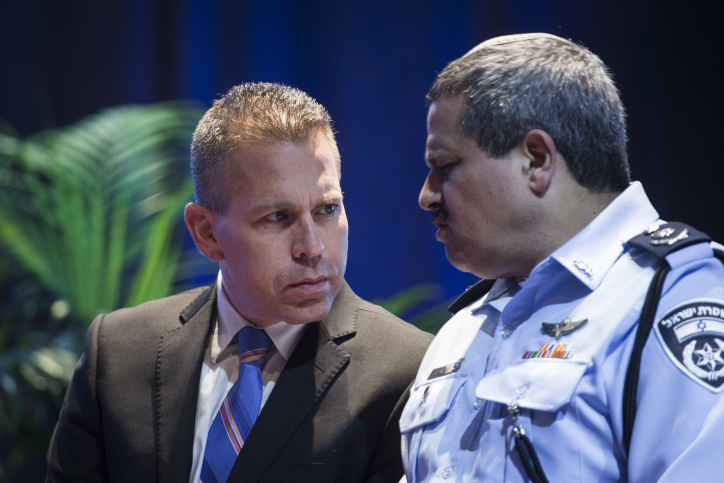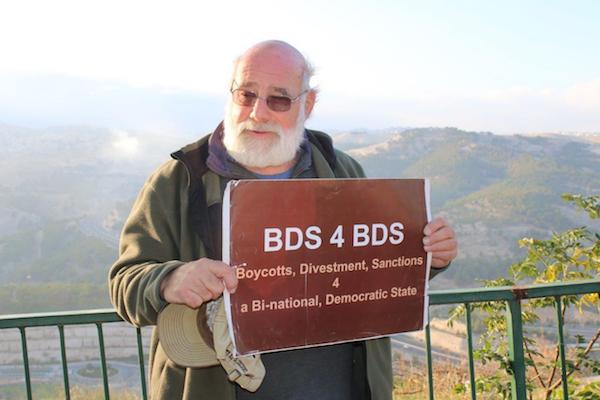Israel’s minister of strategic affairs is gathering intelligence and compiling blacklists on Israeli citizens who support the boycott movement.
By Amnon Portugaly

These days Gilad Erdan, Israel’s minister of public security and strategic affairs, is promoting a new law that would exclude his ministry from governmental oversight. This is a step meant to help fight the BDS movement, while also granting legitimacy to gathering intelligence on Israeli citizens who are involved in the movement to boycott Israel.
In June, Haaretz reported that the Strategic Affairs Ministry, which Erdan heads, would essentially be shielded from certain provisions in the Freedom of Information Law — as decided by the Ministerial Committee for Legislation.
According to the bill, a decision was made in October 2015 by the Ministerial Committee on National Security, enabled the ministry “to fulfill its functions effectively, it is suggested to exclude from the provisions of the Freedom of Information law the ministry’s activities within the framework of the responsibilities imposed on it by the government to lead the campaign against the phenomenon of de-legitimization and boycotts against Israel.”
But why must the battle against BDS organizations be kept away from the public eye? And what does “fulfilling its functions effectively” mean?
Erdan has already established an office in the Military Intelligence Directorate whose job is to gather intelligence on foreign BDS activists. Now it is becoming clear that Erdan wants to expand the surveillance activities of his ministry to include Israeli citizens. In his view, many Israeli citizens are involved in encouraging boycotts of Israel while collaborating with foreign BDS activists.

In fact, the Israeli government has been doing this for quite a while through shadow organizations such as Im Tirzu, Israel Academia Monitor, and the like. Now Erdan and the government are institutionalizing those organizations’ work. Attorney General Avichai Mendelblit and his deputy Avi Licht opposed the move, arguing that the Public Security Ministry does not have the legal authority to gather intelligence and manage databases on Israeli citizens.
The work of the new intelligence office in the Military Intelligence Directorate will likely include dozens of people who will gather and sort through information, and enlisting informants who will pass along information on BDS supporters in Israel and across the world. A kind of spy game that includes the methodical surveilling and categorizing of activists. Establishing databases and blacklists, the criteria of which are unknown. These lists will include citizens, organizations, and companies that call to boycott Israel or support the BDS movement, with the goal of preventing them from visiting Israel or to punish them with sanctions.
Intelligence gathering on political activists or dissidents was and continues to be the legacy of regimes such as the one that ruled East Germany. There, the Stasi secret police under Markus Wolf spied on citizens through a wide network of informants and collaborators, gathered intelligence on dissidents, and put together blacklists.
Erdan’s activities befit tyrannical countries such as North Korea and East Germany. His actions are immoral, illegal, and do not conform to the principles of democracy and law.
Amnon Portugaly is a research fellow at the Chazan Center for Social Justice and Democracy at the Van Leer Institute. This article was first published in Hebrew on Haokets. Read it here.


